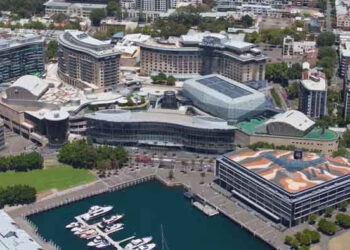Reports in the Singapore media last week that yet another local businessman has lost a huge amount of money at the city-state’s casino tables are likely to fuel the debate about what exactly the casinos are designed to do.
The proposal put by the government to a somewhat sceptical public back in 2005 was that the casinos would boost foreign tourism, not empty the pockets of Singaporeans. The number of locals gambling in the new integrated resorts is currently a hot topic in the Singapore media and among lawmakers. Figures reported in Singapore’s parliament show a million Singaporeans entered the casinos in the first seven months of their operation.
The fact the big local losers had their VIP credit issued direct by the casinos rather than by junkets puts the casinos directly in the firing line of negative public opinion. A big benefit of Macau-style junkets (aside from credit risk absorption) is that to some extent they distance the operator as an organisation from ethical responsibility for VIP losses. So far, no Macau junkets or Macau-style junkets have been licensed in Singapore.
The Lion City’s casino operators may need to balance the commercial interest of maximising revenue against the need for good public relations—possibly by some kind of public statement regarding their policies on high roller credit issuance for Singaporeans. By being seen to be proactive rather than reactive, they would arguably ease some of the political pressure on the Singapore government.
The latest high roller to take big losses is said to be a Singapore entrepreneur who was recently featured on Forbes‘ ‘Singapore’s 40 Wealthiest’ list. He has not so far been identified by name, but reportedly spent a total of SD100 million (USD75.6 million) across both integrated resorts (IRs).
Only a few weeks ago it was reported that Singapore businessman Henry Quek lost SD26 million in three days of heavy gambling. Mr Quek, the managing director of a seafood processing company, had initially considered legal action against Resorts World Sentosa (RWS) for allegedly granting him credit too easily. The RWS management was certainly aware of the political sensitivity of the issue. It apparently reduced the debt by SD6 million initially and then lopped off a further SD3 million after the story appeared in the media.
The two IRs—RWS and Marina Bay Sands—were approved on the basis they would help to increase tourism to 17 million arrivals by 2015, and triple the SD10 billion in annual tourism receipts achieved in 2004. The SD100 per day or SD2,000 per year entry fee for Singapore citizens and permanent residents was meant to provide a price point barrier for those on low to middle incomes.
Tourism numbers in Singapore are certainly rising. Singapore Tourism Board said 7.6 million arrivals were recorded between January and the end of August, a year-on-year increase of 22.2 percent. For the record, Malaysians arriving by land and air transit and transfer passengers are not counted in the figures. Malaysians are counted as foreign arrivals, however, for the purposes of casino play, and foreign high rollers are gambling as enthusiastically as Singaporeans. A Malaysian businessman from Sabah reportedly lost SD50 million at the Singapore tables recently.
But the casinos can hardly be expected to voluntarily turn away local VIP players given the USD10.6 billion they have jointly invested in Singapore and the fact that VIP player numbers are smaller than in Macau (even if their rolling is more profitable thanks to lower tax rates). So far (officially at least) the VIP play in Singapore is all of the direct premium variety (with credit provided by the casino) because it’s very difficult for Macau-style junket operators to get licensed.
Singapore has, though, already fired a warning shot over the casinos’ bows regarding the targeting of local mass market players, by last month ordering the operators to stop running local shuttle buses to the resorts.
“This signal is to reinforce the point that they [the casino operators] are not supposed to go after the low-hanging fruit which the local market represents, but instead to focus their effort on winning additional tourists from abroad,” stated Vivian Balakrishnan, Singapore’s Community Development, Youth and Sports Minister in answer to a question in Singapore’s parliament.
The area of the casinos’ operations potentially most vulnerable to curtailment action is the high roller or VIP segment. Recent claims that junket operators from outside Singapore are masquerading as players and sub-letting chips to their customers to get around the city’s tough probity checks on Macau-style gambling agents are difficult to prove. But Singapore’s Casino Regulatory Authority is well aware of the claims and could potentially seek amendments to the Casino Control Act or its attached gambling credit regulations that could involve any VIP player being subjected to detailed background checks. This could have the effect at the very least of making the casinos’ management of the VIP segment more bureaucratic and cumbersome, potentially depressing volumes of play and ultimately affecting the bottom line.
For more on this topic read our story ‘Stormy Weather’ in the October digital edition of Inside Asian Gaming.






























